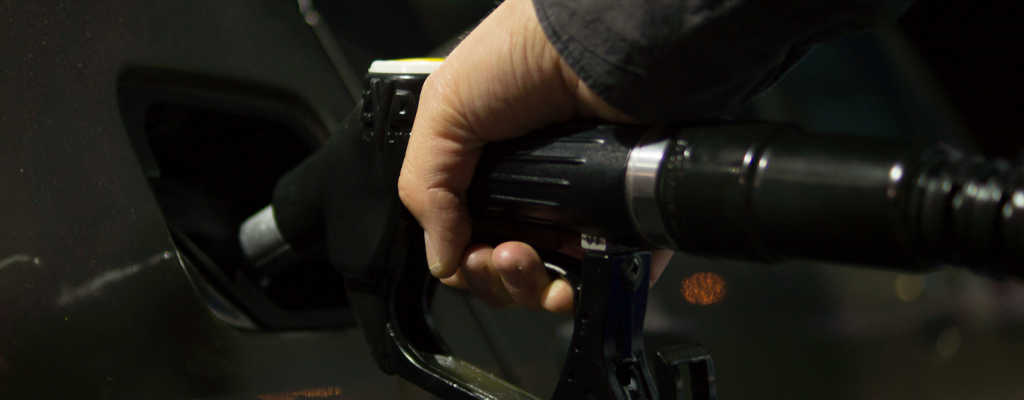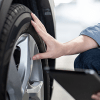
As we feel the squeeze of rising costs, high inflation and stagnating wages, many in the UK have a much greater than normal need to save money wherever they can.
For many organisations, fuel has historically been an expense which is grimly accepted as inevitable, but the current challenging financial environment is making saving wherever possible a necessity – and fuel is a surprisingly easy area in which fleets can make huge savings.
According to the US Department of Energy, aggressive or erratic driving can reduce miles per gallon by 15–30% at motorway speeds or 10–40% in stop-and-go traffic.
Saving 10-40% on a major business cost is the kind of opportunity that business should be racing to take advantage of, and yet a shockingly low proportion of business drivers receive training that includes economical driving.
Expert training
Training with an expert – in-car training specifically targeting fuel economy or with virtual classroom lessons like Toolbox Talks remains the best way to ensure that your drivers truly absorb lessons in economical driving.
Toolbox Talks are a budget-friendly option that don’t involve on-road training – hosted on Zoom and delivered to groups of up to 12. The talks cover a range of topics which can be selected to target whichever issues are the greatest concern for your fleet. Keeping the participants focused and having fun is crucial to them coming away with deeply absorbed lessons, so the experienced ADI who hosts the session will work hard to ensure the audience are engaged – getting everyone involved with direct questions and enthusiastic delivery.
The power of on-road training like Eco-Driving Training is to ensure that drivers not only absorb, but truly understand lessons in fuel economy, by seeing and enacting real examples of economical driving behaviour in everyday driving situations. With the benefit of an instructor who can give instant feedback, drivers will be helped to hone their techniques for maximum benefit.
Smooth sailing
Smooth driving is safer as well as more efficient, so avoid sharp changes in speed whever you can. No late braking or gunning the engine when the lights go green!
Shed the weight
Carrying around unnecessary weight is surprisingly common – golf clubs, gym bags, and all manner of things kept in the car for potential future use. Get rid of the excess weight until it’s needed!
Of course, there are plenty of things that we should keep in our car. Just remove what isn’t needed.
What’s the rush?
Air resistance doesn’t increase proportionately with speed. It makes much more of a difference than this. Air resistance increases exponentially, which means that as we climb in speed, the air is working against us disproportionately more.
This study reports that an increase from 110 km/h (about 70 mph) to 130km/h (about 80 mph), an 18.2% change in speed, resulted in a 30% increase in fuel consumption per mile.
The bottom line is that drivers who drive at 80 mph on the motorway are not only breaking the law and putting themselves in danger, they’re needlessly throwing away money on fuel which will quickly add up to vast sums for regular speeders.
Beware of tried tyres
Tyre care is commonly neglected by UK motorists, but it’s an enormously important part of what should be our regular car care regimen.
Like speeding, bad tyres are dangerous, illegal, and inefficient. Tread, condition and pressure are all important, but it’s pressure which is most relevant to fuel economy: underinflated tyres use more fuel.
When it comes to choosing new tyres, it’s worth having a look at ones which are designed for extra economy. If you’re unsure on how to check your pressures, then check out Tyre Safe who offer a range of resources for vehicle owners. However, it is always advisable to check the setting recommended by your vehicle manufacturer, and this can be found in your handbook. Consider changing to a pressure suitable for high speeds or heavy loads if you are on a long journey.
Timing is everything
We’d all love to avoid traffic if we can, but sometimes traffic is inevitable. When it is possible, avoid driving during heavy traffic. Stopping and starting in traffic needs the use of the first gear and a lot of fuel is used to get the vehicle moving again.
So, if you can plan that journey to avoid unnecessary congestion then you could save not only your time, but fuel as well.
See the future
Anticipation is the magical power to predict the future.
Except that it isn’t really magic: it’s just about looking far ahead and planning accordingly, to avoid having to react to hazards at the last moment.
Drivers can revolutionise their driving with proper Observation, Anticipation and Planning (OAP), which will massively boost both safety and fuel economy by naturally encouraging smooth and steady driving.
Be clever about climate control
Air conditioning (AC) is the single largest contributor to lower fuel economy during the summer. Under very hot conditions, AC can reduce a vehicle’s economy by a whopping 25%. Since air conditioning systems run off the engine, they often sap power and fuel efficiency in the process, so if you don’t need it on then you may eke out a few extra mpg if you turn it off. If you do need it then it’s worth using sparingly.
For a printable guide which you can share with your drivers, download our Eco-driving poster.



